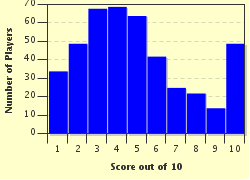Quiz Answer Key and Fun Facts
1. The "Lizzie Borden Legend" is fraught with misinformation and misconceptions about what actually happened inside the Borden residence on that hot August day in Fall River, Massachusetts in 1892. Top on the list is the common belief that an axe was used to kill Lizzie's father, Andrew Borden and her stepmother, Abby. In fact, another sharp object was used to kill the Bordens. What was it?
2. Lizzie Borden hailed from a respected, upstanding family, but the stories that friends and family shared with police during the murder investigation indicated that Lizzie was a very unusual person. One unusual thing about her was the way in which she allegedly responded to the continuous meowing of a visiting family member's pet cat. What did Lizzie supposedly do to the crying cat?
3. Lizzie Borden's family had an Irish maid named Bridget, also known as "Maggie", who was questioned about the murders of Andrew and Abby Borden, but not considered a suspect. Still, some historians who believe that Lizzie really did kill her parents also think that Bridget may have played a role as well. One reason for this is that, after her acquittal, Lizzie allegedly paid for Bridget to relocate and start a new life. Where did Bridget supposedly relocate?
4. Shortly after the murders of her parents, Lizzie Borden was questioned by a police detective who asked her what she had been doing on that fateful morning. Lizzie responded by describing several activities. Which of the following activities did she NOT include in that morning's itinerary?
5. After she was acquitted of the murders of her father and stepmother, Lizzie Borden used her inheritance money to do something that she had been asking her father to do for years. What did Lizzie do with the money her murdered parents left behind?
6. Like most middle class women in 19th century America, Lizzie Borden didn't work outside the home. However, she did have a non-paying "job" involving children. In what capacity did Lizzie Borden work with local kids before being charged and subsequently acquitted of double patricide?
7. Lizzie Borden had a noted aversion to her stepmother, Abbie Borden, In fact, following the murders of Abby and her father, Andrew, Lizzie responded very tellingly to a comment made by one of the local policemen investigating the crime. When he referred to Abbie Borden as her "mother", what did Lizzie say?
8. At her inquest, Lizzie Borden answered endless questions about her relationship with her stepmother, her father's will and the clothes she was wearing on the day of the infamous murders. What did she say she was wearing on the fateful day?
9. The case against Lizzie Borden was largely circumstantial, which was a definite factor in her eventual acquittal. But prosecutors did come up with some incriminating evidence against her, such as the fact that she attempted to buy a certain kind of poison only days before the murders of her parents. What potentially lethal substance did Lizzie attempt to buy?
10. Following her death in 1927, Lizzie Borden's will revealed that she had left all of her money to a specific charity. What kind of charity benefited from the death of the infamous Lizzie Andrew Borden?
Source: Author
gretas
This quiz was reviewed by FunTrivia editor
DakotaNorth before going online.
Any errors found in FunTrivia content are routinely corrected through our feedback system.

